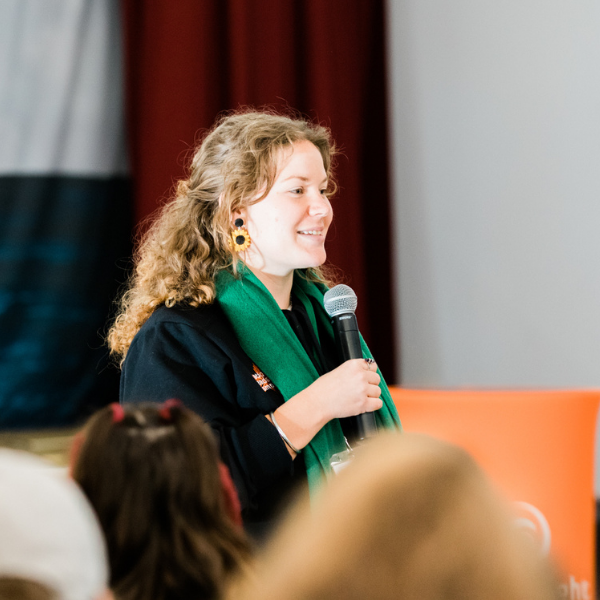As a Boomer or an X-er, you’ve finally gotten used to the millennials in your office running around like they own the place. But now there’s a new generation on the horizon: Gen Z. While this generation includes 8-year-old children, it’s mainly comprised of millions of young adults who could be staffing your organisation tomorrow…or who might already be working for you now.
The importance of understanding Gen Z (a.k.a. iGen)
Gone are the days of hiring someone and having them merge, drone-like, into your workplace culture. Today, before recruiting new employees, it’s essential to understand the defining characteristics of their generation so you will be able to not only retain them past their probation period, but integrate them into your multigenerational team — and motivate them to become the future leaders of your company.
Here are some fast facts about Gen Z:
· Born between 1994 and 2010
· Highly adaptable
· Unparalleled access to information and use of tech
If, as an entrepreneur or recruiter, this sounds like your dream employee already, read on to find out what really makes Generation Z tick when it comes to the workplace.
6 key things to know about Generation Z that will make your life a lot easier
1. Money isn’t everything.
Your Gen Z employee is less likely to be motivated by money than by opportunities for advancement. While promotions often do go hand in hand with more money, and that is certainly important given today’s high cost of living, for this generation it’s also about the learning and growth, at least initially. This group has never lived in a world without the Internet, and they know that knowledge is the key to success — so expect your Gen Z employee to take you up on opportunities for PD, whether they come with immediate rewards or not.
2. Speed speaks for itself.
Gen Z grew up with instant communications; it’s no wonder they are go-getters. Why should things take time when everything from lunch to the totality of all human knowledge and experience is available with a few clicks? Gen Z’s need for speed is often a concern to managers, who worry that young people won’t be able to follow chain of command when they don’t approve of red tape and bureaucracy. Work with shorter attention spans by breaking mammoth tasks into more digestible chunks that can provide the relatively quick gratification of a task well done. And don’t take 3 days to respond to a Gen Z employee’s email — you shouldn’t be doing that anyway.
3. They wish they were you.
Gen Z has grown up in a very uncertain financial climate (and climate-climate). Never before has a generation witnessed so much global social, economic, environmental and financial upheaval; on a micro level, they may have seen parents lose secure jobs or even flee horrific circumstances like war or famine. This makes Gen Z eager to make their own way in the world. Sure, this entrepreneurial spirit might make your Gen Z employee a little more headstrong than you’d like, but consider the leadership qualities inherent in the group: they can take responsibility for self-directed work and manage others, freeing you to step back and enjoy the fruits of your own labour.
4. Post-millennial = post-technology.
While Gen Z has unprecedented access to, and understanding of, technology, they have risen above it in terms of dependence. Messenger is to Gen Z as the light bulb is to previous generations: It’s useful and ever-present, but do you really need to turn on a light when the sun is shining brightly? It’s just a tool, so don’t think you need to text your Gen Z employee to ask how the project is coming; swing by and talk to them in person or pick up the phone and have a good old-fashioned chat. Don’t remain a remote and inaccessible figure or they’ll wonder what you are hiding. Instead, develop the face-to-face communication skills of your Gen Z employees and offer personal praise and encouragement for a job well done.
5. Life is for living, not working.
Many young people (and older ones!) aren’t content with the work-like-a-slave-during-the-week-and-disconnect-on-the-weekend model. First of all, there is no such thing as disconnection anymore, which can work in your favour; most employees don’t mind checking important messages after the work day if that work day was flexible enough in the first place. Enticing and retaining Gen Z may involve offering more opportunities to work from home, flexible scheduling that allows time for fitness, child care and personal interests, and good paid holidays. But those employee retention strategies have been proven successful all over the world (ahem, Scandinavia).
6. You offer workplace diversity and equality…and your point is??
Post-millennials are the most diverse group in the workplace. They’ve never experienced overt institutionalised racism or other forms of discrimination; on the contrary, they grew up with anti-discrimination legislation and globalization. Gen Zs don’t seriously expect to run into any problems with equality; your stated pride in promoting women equally will result in a baffled, condescending and slightly glazed stare from your Gen Z employee. What a Gen Z will notice and pick up on immediately is ageism, which is often directed against them. You can support your Gen Z employees by listening to their ideas and valuing their contributions, not sidelining them because they don’t have gray hair.
In summary…
Spending the time upfront to get to know your Gen Z staff as people with valuable characteristics, beliefs and drivers will help you become a choice employer for the current crop of smart, entrepreneurial, independent employees.








